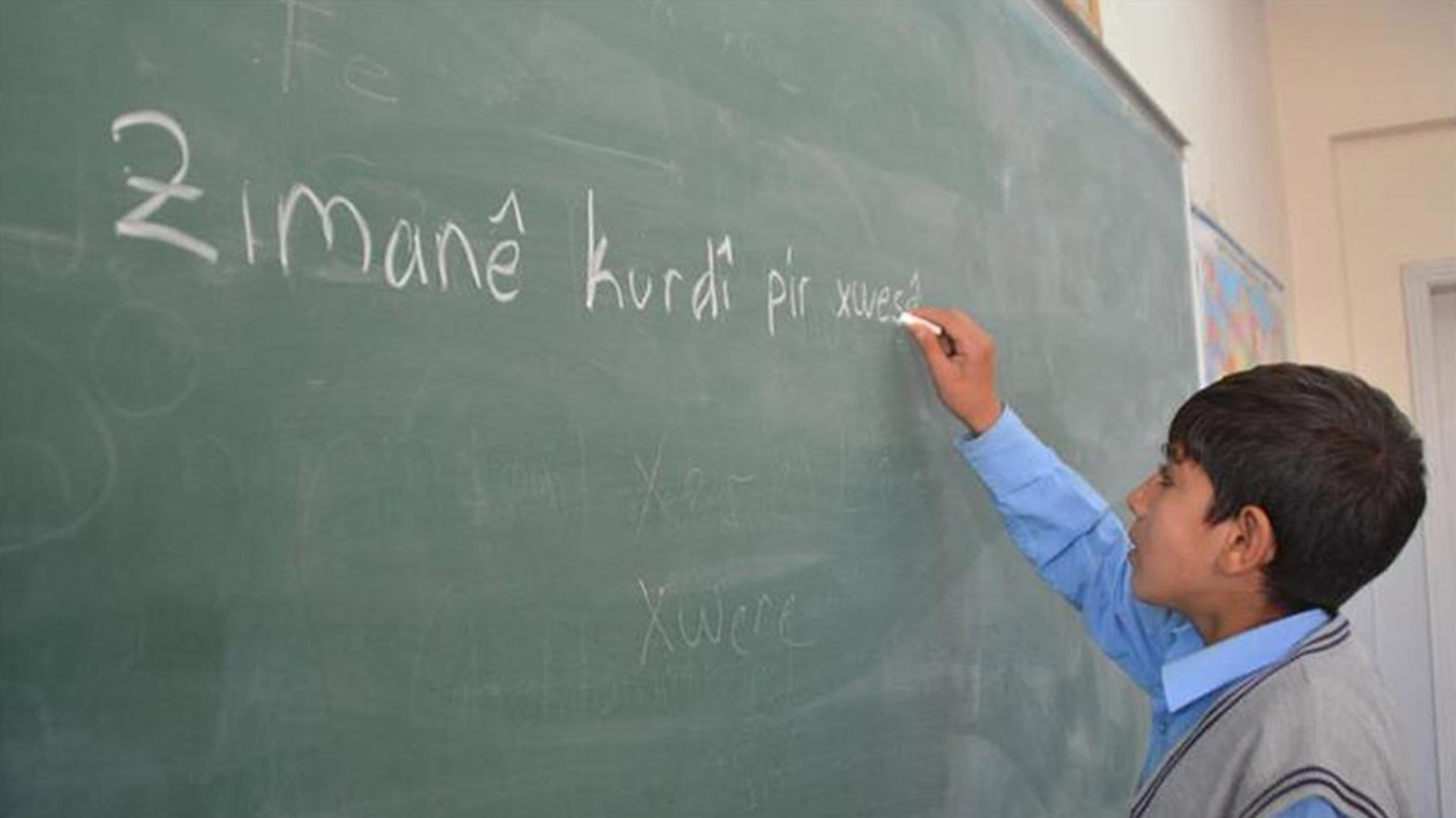97% of Kurds in Türkiye Demand Kurdish as an Official Language in Schools
A new survey reveals 97% of Kurds in Türkiye want Kurdish recognized as an official school language, with 57% using it daily. The study shows declining fluency among youth despite strong cultural attachment to the language.

ERBIL (Kurdistan24) – A recent field survey conducted by the Center for Social and Political Research between July 17 and 21 has revealed overwhelming support among Kurds in Türkiye and Southeast Türkiye (North Kurdistan) for Kurdish language rights, with 97 percent of participants demanding that Kurdish be recognized as an official language in educational institutions.
The findings highlighted that the majority of Kurds in North Kurdistan prefer speaking Kurdish in daily interactions, underscoring the language’s central role in identity and social life. However, the study revealed generational disparities: fluency in Kurdish is significantly stronger among those over 35, while younger Kurds under that age demonstrate weaker proficiency.
When asked about Kurdish language knowledge:
-23.5% said they know it “very well.”
-43.2% reported knowing it “well.”
-16.2% admitted only weak proficiency.
The survey also examined intergenerational communication patterns within Kurdish households. Findings showed that:
-40.1% of children communicate with their parents in Turkish.
-24.7% use Kurdish in the Kurmanji dialect.
-1.3% speak in the Zazaki dialect.
In broader social life, Kurdish remains a dominant medium of expression:
-57.1% use Kurdish daily.
-25.7% use it at work.
-12.3% speak it occasionally.
-4.8% reported never using it.
The research also illustrated strong cultural attachment to the language. 77.9% of Kurds in Türkiye listen to Kurdish music and songs, while 37.2% read books in Kurdish.
The demand for official recognition in schools reflects widespread frustration over linguistic marginalization and the erosion of fluency among younger generations. The study’s authors noted that unless Kurdish gains institutional support, intergenerational transmission of the language risks further decline.
The survey covered 23 cities—including 10 major Turkish urban centers such as Istanbul, Ankara, and Izmir, and 13 cities in North Kurdistan, including Diyarbakir, Mardin, Van, Urfa, and Dilok (Gaziantep).
Participants represented diverse Kurdish communities, with 88.2% Kurmanji speakers, 10.4% Zaza speakers, and 1.4% from other groups.
Kurdish Language Still Marginalized
The Kurdish language, spoken by nearly 17 million people in Türkiye, remains marginalized in the education system despite rising public demand for recognition.
Earlier this year, the Kurdish Language Volunteers Union (DILKURD) urged families to select Kurdish as the medium of instruction during the 2025 enrollment period for grades 5 to 8. Executive Director Mehmet Salih Ozturk called it a crucial step for preserving the language and combating discrimination.
Although the Turkish Ministry of Education reported a rise in students choosing Kurdish in the 2024–2025 academic year, the program remains limited to a two-hour elective introduced in 2012 under the title “Living Languages and Dialects.” A 2019 government report described the initiative as promoting Kurdish identity but under strict conditions, omitting references to Kurdish heritage in Syria.
